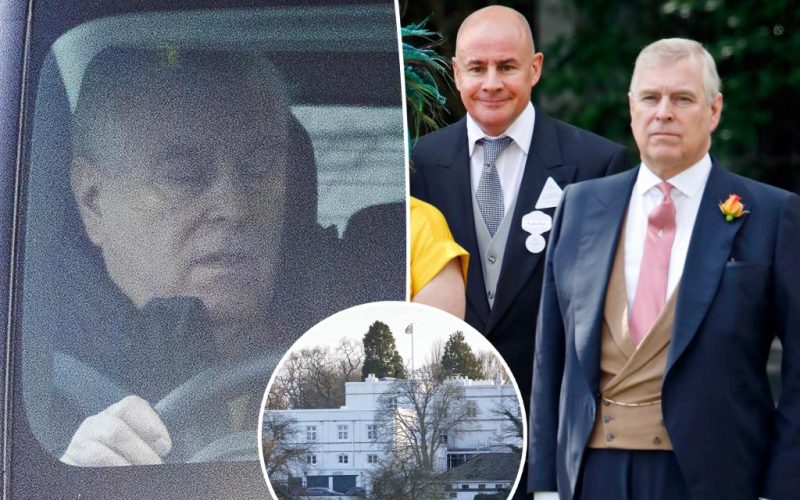Prince Andrew has been reported to police and accused of using a fake name to register a company, The Post has learned.
The disgraced Duke of York, 64, used the pseudonym Andrew Inverness in 2003 when he joined forces with sports retail tycoon Johan Eliasch to set up a company called Naples Gold Limited.
Andrew, who owned four companies that were linked to those registered at Companies House under the name, was described as a “consultant” on official forms, docs obtained by The Post show.
Now, an anti-monarchy campaign group called Republic has accused the former working royal of falsifying official documents.
Graham Smith, the chief executive of the organization, has filed an official complaint to Scotland Yard, responsible for policing much of London.
“The royals appear to believe they can act with impunity, an impression given weight by the lack of police action on serious allegations of corruption and sexual offenses,” Smith told The Telegraph.
London’s Metropolitan Police is currently in the process of determining whether any further action against the scandal-scarred duke is required.
Andrew was given the title Earl of Inverness by his later mother, Queen Elizabeth II, after he wed Sarah Ferguson in 1986.
However, in using the name Andrew Inverness on official documents, King Charles’ younger brother has landed himself in hot water as he faces allegations of using a fake moniker for business purposes.
“The apparent filing of false information with Companies House may seem trivial, but the UK faces serious issues of fraud committed in this way. While no such fraud is alleged here, surely Andrew must be held to the highest standards,” Smith told the outlet.
It comes just one day after the financial firm managing Andrew’s private investments sensationally shut down.
In documents obtained by The Post, Urramoor Limited, a private investment firm over which the disgraced Duke of York had “significant control,” applied to be dissolved just a year after receiving last-ditch backing from an anonymous donor.
Before the mystery bailout, the firm was $260,000 in deficit, according to documents filed with Companies House, the UK’s public registry of companies.
Still, while the anonymous cash injection saved the struggling investment firm in the short term, it was ultimately not enough to keep the company afloat in the long term.
Throughout its 11-year existence, Urramoor failed to generate profit, official documents show.
The company’s director, Arthur Lancaster, signed off on the decision to dissolve the firm on Jan. 3. A formal dissolution process is underway.








